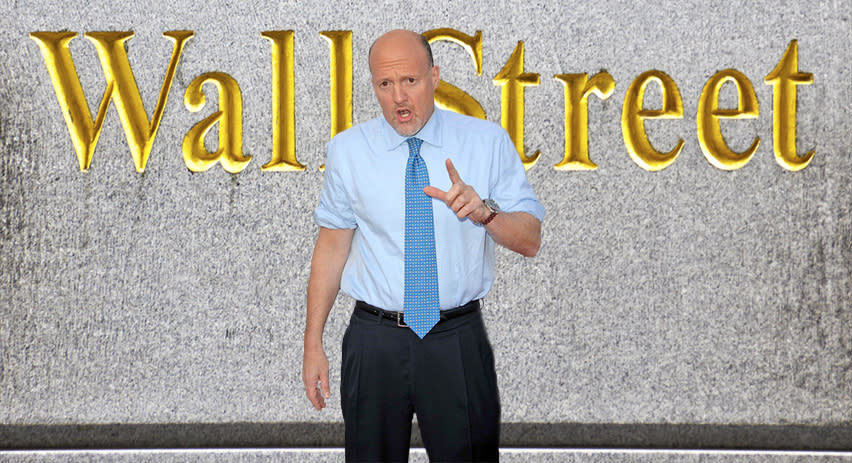Imagine thinking your career is set in stone; that everything is laid out in front of you in a path that is clear, obvious, and well-established.
Now imagine having second thoughts about your career mid-way through walking that path. For Dr. Tanya Ghanjanasak, this became a reality right when she wasn’t expecting it. A doctor in family practice for many years, Dr. Ghanjanasak figured her career would follow the track of many private practice physicians before her: She would see patients and do her best to solve their medical issues until she eventually moved into an administrative role after a few decades. However, her commitment to that path wavered when she took maternity leave to care for her new son.
During her time off work, Dr. Ghanjanasak had ample opportunity to reflect on her career and just how happy she was with its progress and direction. During this time, the most important realization she came to was that the same motivation that had gotten her through medical school and several years in the military was no longer present inside of her. In its place, there was a desire for a genuine work-life balance that could not be found in a private medical practice.
Resolved to switch to a new, more accommodating career, Dr. Ghanjanasak took up medical writing, in large part because it allows her the ability to use her education and skills while also making time for her family. Now, she spends her days assisting the medical community by writing, editing, and publishing medical literature. Her background as a family physician ensures research-backed, high-quality medical writing with a genuine understanding of the material, while her attention to detail and quick turnaround time ensures that her employers are beyond satisfied with the material she produces.
In her free time, Dr. Tanya Ghanjanasak enjoys practicing yoga and running marathons. Also a food connoisseur, she loves trying out new restaurants, as well as attending community events. Of course, her favorite pastime is spending time with her son.
What do you currently do at your company?
As a full-time medical writer, I write publications for researchers and other physicians. They complete the research, then give me their outline and data. My job is to turn that information into a document that can be published in whatever journal they are researching for. Another aspect of my job is to participate in conferences and advisory boards for pharmaceutical companies, then write up executive summaries for those meetings. An example of that would be if a pharmaceutical company was interested in a conference about psoriasis, I would go so I could learn the key opinions of their competitors. I would create a summary that includes any new information or any concerns regarding the subject. I also write educational materials for providers such as doctors, nurses, and pharmacists. Those are mostly sponsored by social organizations, but sometimes they are also sponsored by pharmaceutical companies. Primarily, these will be educational inserts or an introduction to a new medication.
What was the inspiration behind your business?
I was getting a little burnt out being a physician. You can’t even imagine how many administrative issues there are to deal with as a doctor. It was incredibly frustrating at times. When I went on maternity leave to have my son, I found no real motivation to return. I was enjoying being present with my family. I didn’t want to go back to the daily grind, but I also did not want to lose the use of my medical knowledge. I have expertise and skills that are still very useful, so medical writing was a natural change for me. In this way, I can have the real work-life balance that I never could when I was in practice. I have the flexibility to work remotely and still stay up-to-date with the latest trends in medicine.
What defines your way of doing business?
My way of doing business is defined by delivering high-quality work in a relatively fast turnaround time. I emphasize quality and speed with my writing. When I sign on, my clients can expect a thoroughly written, research-backed publication generated by someone who understands the material. There are plenty of writers that can take data and turn it into a document, of course. What sets me apart is the knowledge I carry with me.
What keys to being productive can you share?
I organize everything. I keep a very robust calendar of everything that I need to do and I set a different alarm for each of the different things that need to be done. If there’s a meeting coming up in five minutes, I have an alarm set up. Each morning, I go through my calendar and set my alarms for everything scheduled for that day. It took some time for me to become efficient with time management, especially when I first made the transition to working from home. I had been pretty well used to having a set schedule and supervisors to keep me on track. Using these tools and resources has kept me accountable and productive.
Tell us one long-term goal in your career.
In the next few years, I plan to really streamline my process and fine-tune a few things on which I still see some room for improvement. There’s always a fair amount of work to be done, but if I can find a way to be more efficient, that leaves me with more free time. My long-term goal is to have more time to focus on fun stuff, like my hobbies and traveling. I’ve been very focused on getting my name out there in the medical writing community and really getting the business up and running. I’m looking forward to reaping the rewards of all that hard work.
How do you measure success?
When I compare my life now to what I was doing before, I feel that I am already experiencing what I consider success. I have flexibility I never did before. As I become more established and better known within the field, I know that I will be recommended for more work. I judge my success based on my ability to enjoy my hobbies, and to do things I have been neglecting as I’ve been getting my new career off the ground. Having freedom from day-to-day financial worries is something I look forward to, as well. Just having fewer limitations and more opportunities is how I measure success.
What’s the most valuable lesson you’ve learned through the course of your career?
Your path is not set. Anything can happen that can potentially change the direction of your career. I always assumed that I would practice clinically until I moved into an administrative role or retire. My pregnancy unexpectedly allowed me to pause and really evaluate my career. There I was evaluating, for the first time really, what I loved about my work and what I didn’t love. Stepping back and taking a longview helped me to move in a direction I had not thought of before. So many of us are searching for that perfect work-life balance, but are too afraid of the unknown to take a step off the safe path. Once I became comfortable with the idea of changing, it was so much easier to move in that direction.
What advice would you give to others aspiring to succeed in your field?
I would advise that there will always be things that you can do to your work, little tweaks here and there, to constantly improve it. Learn to recognize and become comfortable with when to stop. View it as you would a painting. There might be subtle changes that could be made to improve it, but you have to know when to stop and see the work as a complete piece. Then, send it to your client once you’ve made that call so that you’re not spending a significant amount of time on minor adjustments. Time spent doing that can be far more costly to you, as well as to your client. It’s very important that you honor your commitments by turning in high-quality work, but it’s also important to be mindful of the time it takes.
What are some of your favorite things to do outside of work?
I love finding new restaurants, as well as checking out established restaurants to see if they have new events going on. Facebook is a great way for me to see what local events are happening around the community. Right now, I’m still a one-man show and I’m working remotely, so it’s a great way for me to socialize, which is important for my mental health. I’m blessed in that I live in a great neighborhood where everybody has gotten to know each other. Just yesterday, we invited my 81-year-old neighbor over for dinner and she brought another of our neighbors who would have been eating alone otherwise. This is the first place I’ve lived where I’ve had the opportunity to interact with my neighbors on a personal level and I really enjoy it.
How do you maintain a solid work-life balance?
The way I have my days planned out has a lot to do with it. Setting alarms for things throughout the day helps me to stay on track. When I’m working on a publication, I tend to hyper-focus. I also understand the importance of stopping at a certain point. You have to know when it’s time to turn off work for the day and make time for your family and for yourself. As long as you can set up and maintain good time management, you can find a work-life balance.
Who has been a role model to you and why?
My grandfather was such a role model for me. He passed ten years ago, but even into his sixties, he was running a home business. He always found such enjoyment in the simpler things. He had a rooftop garden and you would always find him up there in the evenings. What I loved about him is that he never stopped being young. He loved to play and he loved his family. Thinking about him and how much he genuinely just enjoyed the little things has helped me learn to appreciate more in my life. He is definitely someone who made a big impact on me.
What is one piece of advice that you have never forgotten?
Something that has stayed with me since I was young—and I’m not even sure who said it—was that Jesus Christ was as perfect a human as could be, and still some people didn’t like him. In other words, it’s not your responsibility to get everyone to like you. If Jesus couldn’t do it, you certainly won’t be able to. That thought helped me to let go of the desire to please everyone and instead be authentic to myself. A lot of people learn that lesson the hard way. We should live a life that is true to ourselves and not put so much weight into what others think of us. It’s not our business to know what other people think of us.


















